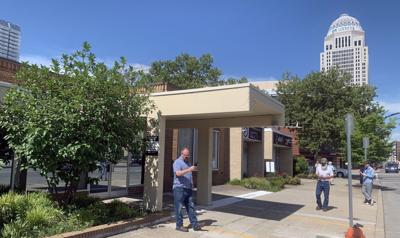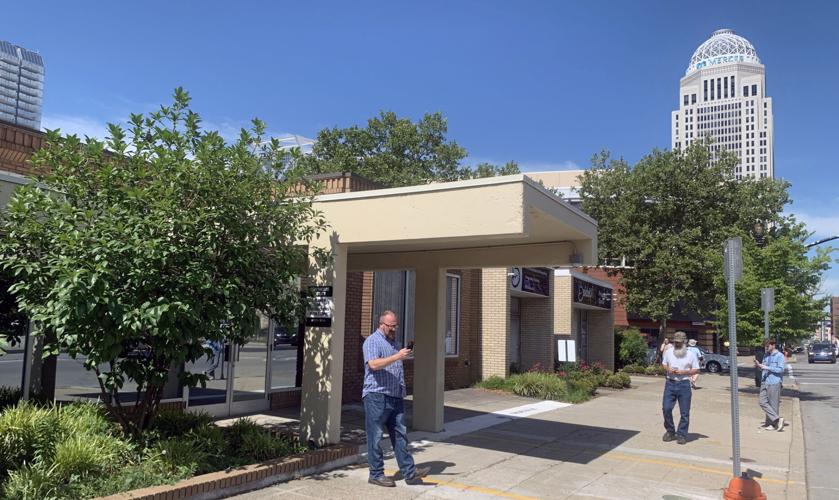LOUISVILLE, Ky. (WDRB) -- A judge in Louisville granted a temporary restraining order to block Kentucky's near total ban on abortions.
Jefferson County Circuit Court Judge Mitch Perry released the decision Thursday. The restraining order means abortions in Kentucky can resume.
Kentucky's two abortion clinics — the EMW Women's Surgical Center and Planned Parenthood clinics in Louisville — filed suit and asked a judge Wednesday to issue a temporary restraining order to block a state law that took effect after Friday's U.S. Supreme Court ruling.
Attorney General Daniel Cameron released a statement late Thursday afternoon saying he asked the Kentucky Court of Appeals to stay Perry's decision.
"Every day that goes by that the Human Life Protection Act and Heartbeat Law are prevented from taking effect, more unborn lives will be lost," Cameron said. "These laws represent Kentucky’s values and its support for life. We’re moving quickly to defend this important law and to have it restored."
We've asked the Court of Appeals to Reinstate Kentucky's Human Life Protection Act and Heartbeat Law. Read more: https://t.co/lUqoQOj4pS pic.twitter.com/iFY4R3vSCE
— Attorney General Daniel Cameron (@kyoag) June 30, 2022
The Kentucky case reflects the battles now being waged in courthouses around the country over whether pregnancies may be lawfully ended.
Attorneys for the clinics argued Kentucky’s constitution protects the right to an abortion. In defending the state law, Cameron’s legal team said no such constitutional right exists. Perry heard arguments from both sides in a Louisville courtroom Wednesday before issuing his order.
"In the wake of an historic victory for life at the nation’s highest court, today, one judge in Kentucky has, without basis in the Kentucky Constitution, allowed two clinics to resume abortions," Cameron said in a statement. "We cannot let the same mistake that happened in Roe v. Wade, nearly 50 years ago, to be made again in Kentucky."
A lawsuit filed Monday on behalf of the abortion clinics claims women were being "forced to remain pregnant against their will" in violation of the state’s constitution. The suit asked the judge to temporarily block the "trigger law" along with another Kentucky law that attempted to prevent abortions after six weeks of pregnancy. The six-week ban was previously blocked by a federal court. But the lawsuit said it’s anticipated that the injunction preventing its enforcement will be dissolved in light of the Supreme Court decision.
The trigger measure contains a narrow exception allowing a physician to perform a procedure necessary to prevent the death or permanent injury of a pregnant woman. It does not permit abortions in cases of rape or incest.
Leaders of Planned Parenthood Federation of America, Planned Parenthood Great Northwest, Hawai’i, Indiana, Kentucky, ACLU, and ACLU of Kentucky released a statement following the ruling.
"We’re glad the court recognized the devastation happening in Kentucky and decided to block the commonwealth’s cruel abortion bans. Since the Supreme Court overturned Roe last Friday, numerous Kentuckians have been forced to carry pregnancies against their will or flee their home state in search of essential care. Despite this victory, we know this fight is far from over — especially with politicians like Attorney General Daniel Cameron doing everything they can to score political points at the expense of Kentuckians’ wellbeing. We won’t stop fighting for people’s ability to access the essential abortion care they need in Kentucky. The government should never have the authority to force a person to remain pregnant against their will."
Attorneys for the clinics argued that Kentucky's constitution allows for abortion. They said one of the clinics has turned away about 200 potential patients since the Friday ruling.
Because the Supreme Court said abortion is not protected by the U.S. Constitution, abortion rights advocates are challenging the ban by arguing it violates the Kentucky constitution covering the right to privacy and bodily autonomy.
A hearing on the ACLU's request for a temporary restraining order on Kentucky's trigger law banning abortions is scheduled July 6.
The request to continue abortion services in Kentucky — through intervention by state courts — could turn into a stopgap effort. In November, Kentuckians will vote on a ballot initiative that, if ratified, would establish that no state constitutional right to abortion exists. Both sides of the abortion debate are busy organizing ahead of the election.
This is a developing story that will be updated.
Related Stories:
- ACLU, Planned Parenthood file suit in Kentucky to block abortion bans in state court
- Abortion 'over' in Kentucky after Supreme Court decision, AG Daniel Cameron says
- What the Supreme Court's decision to overturn Roe v. Wade means in Kentucky, Indiana
Copyright 2022 WDRB Media. All Rights Reserved.



























